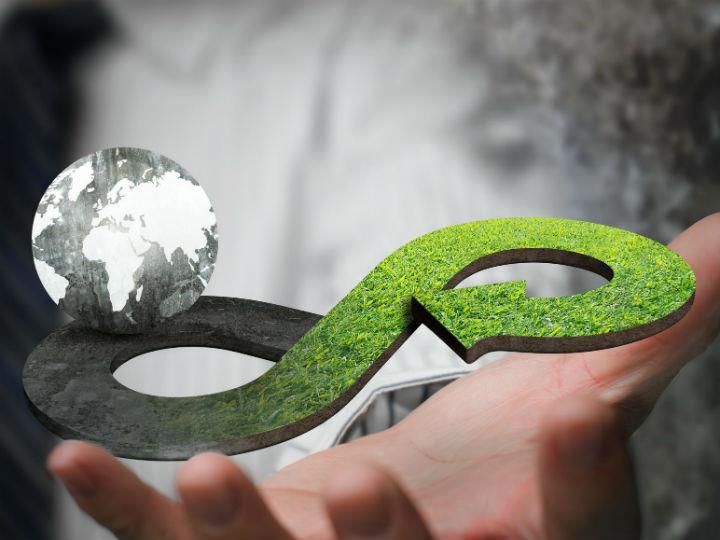by Stefano Mallia*
EU employers are ready to switch gear and accelerate the roll-out of the green and digital transitions, writes Stefano Mallia.
Climate neutrality and digital leadership will not be an easy task for Europe. The transformative agenda of the European Green Deal is as demanding as it is compelling. Some CEOs perceive it as a Herculean task.
We are ready to take up the challenge and fully support the 55% reduction target by 2030, endorsed by the European Council last week. This however must be coupled with an enabling policy framework to ensure competitiveness and industrial transformation.
It is clear that decarbonising the industry will load energy intensive companies (such as steel, cement and the chemical sectors) with high-energy costs while simultaneously imposing a massive structural change on the industrial, transport and energy sectors, risking an economic disadvantage in a competitive global market.
But it can be achieved if the EU’s overarching climate policy objective is balanced with an ambitious industrial strategy that boosts competitiveness – and an equally ambitious energy policy designed to ensure long-term energy security and affordability.
There is no doubt that the updated industrial strategy which the Commission is expected to deliver early next year, must align major strands of energy politics and industrial competitiveness.
To preserve competitiveness, we need a comprehensive energy turnaround, providing security of supply for businesses and households, without pushing up prices, while increasing both network connectivity and storage capacity. Hydrogen has to play a key role in this process and relevant applications need to be developed as a priority.
At the same time, digital solutions are indispensable to empower progress towards the Green Deal’s goals. They contribute to smart energy distribution, advanced mobility solutions and enable carbon tracking and monitoring.
As Europe is lagging behind in digital development and high-speed connectivity, a ‘Digital Deal’ for Europe is needed and must be given equal attention and strategic weight to the Green transition, to ensure the twin transitions occur in tandem.
We are of the firm belief that European companies have the research capacity and the technological solutions to help our continent become a leading independent actor in the digital field. However, there is a missing parameter in the equation and this is investment.
The EU Recovery Package will provide comprehensive public financial support, which must be aligned with private funding if we want to make sure we create the right conditions for a successful reconstruction.
But that might require the development of new models of cooperation and industrial alliances to ‘future-proof’ our economies and re-shape production processes through concerted efforts between businesses, national governments, regions and EU institutions.
Let’s not shy away from acknowledging the fact that the world is currently in the process of moving from trade wars to techno-political wars. It is therefore imperative that the EU becomes autonomous in the development of a European data infrastructure and new digital technologies.
Between China and the United States, the EU must stand on its own and invest in the technology of the next generation.
The EU has no other alternative than to develop its own vision and strategy for digital sovereignty, while remaining open to free trade and supporting the multilateral system. Strategically it must focus on getting its infrastructure, cybersecurity, cloud, key enabling technology and data in place and convince global partners through the quality of its standards and products.
Companies’ uncertainty on how to use their data, partly because of an unclear scope of data protection regulation is a hindrance for innovation. We need better and clearer regulatory frameworks, also for data and new technologies.
Finally, it is important to underline once again that our SMEs are the backbone of the EU’s economy and will remain so with a sustainable economic growth agenda. Improving their connectivity and digitalisation infrastructure, including skills, AI and the use of new technologies will be crucial.
If no one must be left behind, then there must be no gap between larger firms that have the resources to invest in and adopt digital technologies and the smaller firms that don’t have their own means to do this.
The road ahead is complex and paved with challenges, but we have no other alternative than to accelerate our pace in the dual race of becoming a leader not only on climate action, but also on digital action.
If we want other countries to adopt the European digital model, instead of the one offered by the US or China, we must develop one that is truly sustainable and economically successful.
We have to realise that we are at a critical juncture. Failure to take the necessary actions now will have deep and long-lasting repercussions on Europe’s role in shaping the global future. Failure on this front is not an option.
*president of the Employers’ Group in the European Economic and Social Committee (EESC)
**first published in: www.euractiv.com




 By: N. Peter Kramer
By: N. Peter Kramer
